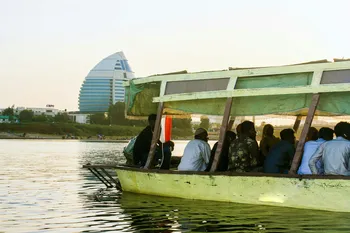Conferences and summits: InfoPoint conference: Shaping Nepal’s building sector towards low-carbon and resource efficiency
Conference Overview
The InfoPoint conference focuses on shaping Nepal’s building sector towards low-carbon and resource efficiency. Nepal, with its diverse climate conditions, has historically had vernacular architectures that are suitable for local climates, designed to withstand extreme temperatures.
Event Details
Date: Monday 24 February 2025
Time: 11:00 - 12:30 (CET)
Location: InfoPoint, Brussels, Belgium
Language: English
Building Landscape in Nepal
Contemporary buildings in Nepal are often poorly designed, failing to account for local climate variations. Buildings are constructed similarly, regardless of their elevation, leading to uncomfortable thermal environments and increased reliance on energy-intensive heating and cooling solutions. Some buildings consume up to 60% of their energy for these purposes.
The use of energy-intensive materials like bricks, cement, and iron bars significantly contributes to Nepal's carbon footprint, hindering the country's goal to achieve net zero greenhouse gas emissions by 2045 .
Challenges for People in the Building Landscape
As climate change accelerates, the impacts on buildings are becoming increasingly evident. A study by the BEEN Project found a 2.5°C difference between indoor and outdoor temperatures, indicating poor building design. Vulnerable populations, particularly children, the elderly, and people with disabilities, are disproportionately affected by extreme temperatures.
Research indicates rising mortality rates from heatwaves among the elderly and children, as well as increasing cold-related deaths in Nepal. Women, especially during pregnancy, face heightened health risks due to heat. The growing use of air conditioning contributes to urban heat islands, making life more difficult for poorer individuals who cannot afford cooling solutions, thus deepening social inequalities.
The economic impact is significant, with many women in Nepal’s home-based workforce losing productivity due to extreme temperatures within buildings. Many structures fail to meet the thermal needs of vulnerable groups due to poor design, inadequate insulation, and a lack of affordable heating and cooling options.
Efforts of the BUILDING Energy Efficiency in Nepal (BEEN) Project
The BEEN project has engaged multiple stakeholders to promote low-carbon and resource-efficient practices in Nepal's building sector.







